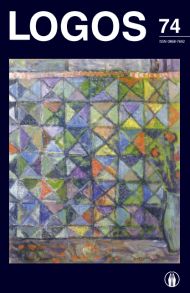T. G. Masaryko Idealios Valstybės Vizija: Tarpukario Čekoslovakijos Pasaulėžiūros Pamokos
T. G. Masaryk’s Vision on the Ideal of the State: Lessons Drawn from the Interwar Czechoslovakian World Outlook
Author(s): Gediminas MesonisSubject(s): Constitutional Law, Political Philosophy, Political history, Government/Political systems, Interwar Period (1920 - 1939)
Published by: Visuomeninė organizacija »LOGOS«
Keywords: T. G. Masaryk; Czechoslovakia; constitution; democracy; humanity; rule of law; evolution;
Summary/Abstract: The article provides an analysis of certain aspects of Tomá Garrigue Masaryk’s (1850–1937) (a philosopher, publicist and a long-standing President of the Republic of Czechoslovakia) outlook on the state. It also assesses the topicality of that scholar’s insights for the development of present-day society. The historical context, the scholar’s education and his views on nationalism and religion, as well as the patterns of geopolitical development, contribute to illustrating the contents of Masaryk’s philosophical outlook and his political activity. A democratic state with humanism as its foundation is the ideal of a state that Masaryk substantiated in his scientific works. Thus, the discourse gives the greatest attention to the disclosure of the humanistic content of democracy. It is held that Masaryk’s democratic state should not be treated as a philosophic utopia, and, therefore, it has not lost its relevance. It is acknowledged that the mechanism of democracy, humanism, the evolutionary nature of the development of a social milieu, as well as social justice, would appear on a list of values, as well as amongst the objectives sought, in any social milieu. While in office of Head of State of Czechoslovakia, Masaryk did not deny the principles of the ideal state set out in his theoretical insights, as he never ceased to be an advocate and a political implementer of the theory of the state that is founded on a democratic form of governance grounded in humanistic principles. It is contended that Masaryk’s humanistic theory of the state neither was, nor is now, an abstraction of a barely philosophical nature, but rather that it may be developed into the principles of political activity.
Journal: LOGOS - A Journal of Religion, Philosophy, Comparative Cultural Studies and Art
- Issue Year: 2013
- Issue No: 74
- Page Range: 95-107
- Page Count: 13
- Language: Lithuanian

